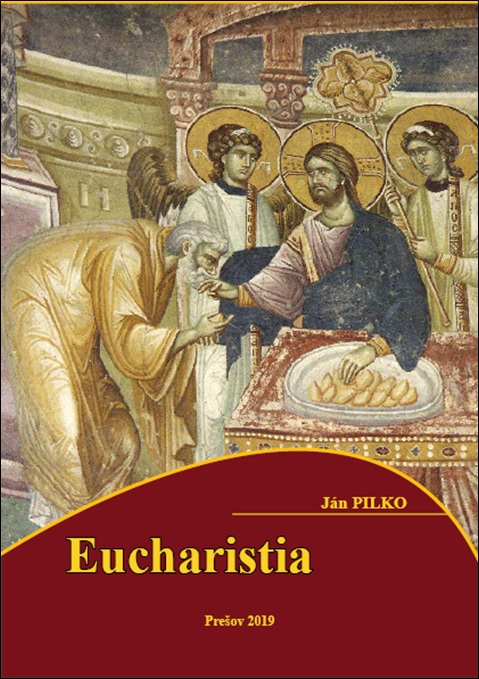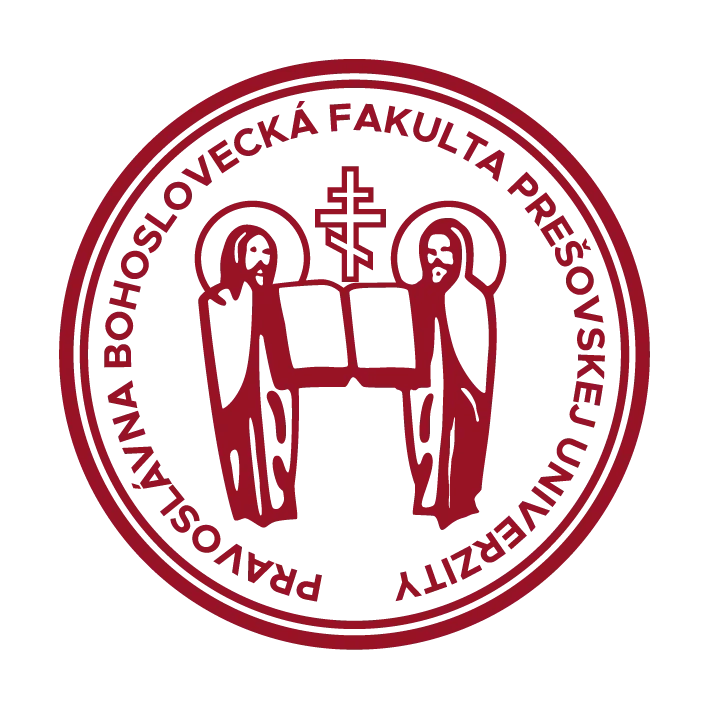KOCHAN Pavol - Acta Patristica, volume 11, issue 22/2020
EUCHARISTIA
/ Jan Pilko, Presov : Faculty of Orthodox Theology, 2019, 107 p., ISBN 978-80-555-2334-7. - Ján Pilko, Prešov : Pravoslávna bohoslovecká fakulta, 2019, 107 s., ISBN 978-80-555-2334-7. /
(review)
 Pavol Kochan, lecturer, Faculty of Orthodox Theology, University of Presov, Masarykova 15, 080 01 Presov, Slovakia, pavol.kochan@unipo.sk, 00421517724729
Pavol Kochan, lecturer, Faculty of Orthodox Theology, University of Presov, Masarykova 15, 080 01 Presov, Slovakia, pavol.kochan@unipo.sk, 00421517724729
Scientific monograph ThDr. Ján Pilko, PhD. on the theme of the Eucharist seeks to clarify the issue of the perception of the holy mystery of the Eucharist in contemporary Christian life, both for the individual and for the whole community. The text is divided into individual chapters, which together with the content, introduction, conclusion, and list of bibliographic references occupy approximately 100 pages of text.
In terms of content, the author addresses the fundamental issues of the Church's teaching on the Eucharist in individual chapters and subchapters. Beginning with the determination of the basic issues and a description of the current state, in the individual chapters he gradually clarifies the meaning and nature of the Christian Eucharist. First, he analyzes the various Old Testament foreshadowings in the first chapters by which the Triune God prepared all mankind through the chosen nation for the coming and receiving of the Messiah, Jesus Christ, who instituted the Holy Eucharist at the Mysterious Supper. It is this part that reminds us personally of the style of St. Ephraim of Syria, which is known for its genius in the exegesis of individual demanding allegories of the Old Testament and their subsequent comparison. Gradually, in the following chapters, the author moves on to the expressions of selected holy Fathers of the Church, who, with their exegesis, approached the Eucharist itself.
We especially emphasize one fact that the author interweaves with the thoughts of almost all Fathers, and that is the essence of spiritual realism, which is found in the holy secrets and thus also in the Eucharist. Perceiving and understanding this aspect of the Holy Secrets helps one to understand the necessity of living the Holy Secrets on a daily basis, especially the Eucharist. In other words, the author sought to capture and explain all the most important issues associated with the Eucharist. Finally, the author approaches the very issue of the chosen topic, which is the Eucharistic life of the Christian today. It characterizes individual questions that arise from the practical life of Christians and which many of them have no biblical-theological or logical justification (the so-called 3-year epitima (prenance) of children to the First Holy Confession, etc.). Many of the absurdities in the liturgical life of Christians stem practically from the effort to justify oneself before God and the Church, which constantly calls through the mouths of many saints to receive the Eucharist daily, which Christos instituted precisely because of man. In the end, the author presents the ideas of individual church writers who answer the current two questions: what caused the deviation from constant acceptance and how this error can be corrected.
Overall, we evaluate the monograph, which is theologically tuned into the liturgy as high quality, which only confirms the author's commitment to scientific research. This is also evident from the rich citation apparatus that the author used in his work. Since the work certainly did not exhaust such a comprehensive topic, which the author himself states, after enriching the topic with more information, we can realistically imagine another part of this work, which would clarify not only the scientific society many problematic issues of current understanding of the place and importance of the Christian life.
